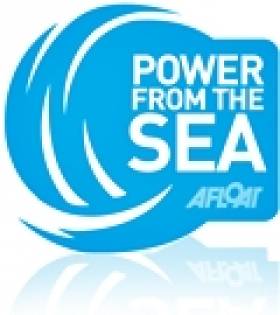Displaying items by tag: underwater noise
International Maritime Organisation to Discuss Underwater Noise Problems
As shipping, recreational boating and energy exploration have increased along coastlines, offshore and in deep ocean environments, concern has been raised about the impact of noise from these activities. Research has established that such noise can travel long distances underwater, and scientific attention has focused on how changes in ocean noise levels could cause effects in coastal and offshore habitats, affecting marine mammals.
There have been claims that higher noise levels can reduce the ability of animals to communicate and reduce their ability to hear, affecting survival, finding food, and navigating to preferred habitats.
There is also concern about the underwater impact of the construction of proposed wind farms.
The International Maritime Organisation (IMO), the maritime agency of the United Nations, which is responsible for regulating shipping, is taking action in regard to noise from ships. Its remit includes maritime safety, environmental concerns, legal matters, technical cooperation, maritime security and shipping efficiency.
It has called a meeting about underwater noise from ships for its headquarters in London this month.
A ‘Workshop on the Relationship between Energy Efficiency and Underwater Radiated Noise from Ships’ will be held on September 18 and 19. This follows the IMO's Marine Environment Protection Committee approved revised guidelines for “Reduction of underwater radiated noise from shipping to address adverse impacts on marine life’ in July.
The IMO says the Workshop will include discussions on how noise emissions can be reduced, what design and technology changes may be needed in shipping, operational measures to reduce overall emissions and other related areas.
It will run from 9.30 a.m. to 5.30 p.m. each day and also be available online.
Registration details are on the IMO website
New Scheme to Measure Noise Pollution from Wave Energy
#POWER FROM THE SEA - The Sustainable Energy Authority of Ireland (SEAI) is teaming with IBM in a new project to assess the noise levels of wave energy devices off the Irish coast.
The scheme will see an array of noise sensing equipment such as hydrophones deployed in Galway Bay to monitor the noise levels of wave energy conversion devices in real time, as well as map patterns of marine life in the area.
According to AOL Energy, noise pollution at sea is a chief concern, having a disturbing effect on fish migrations among other marine ecosystems.
The west of Ireland will prove an important case study in this regard, as it hosts one of the world's largest wave energy infrastructures.
"Underwater noise is a global environmental issue that has to be addressed if we are going to take advantage of the huge potential of ocean energy," said EU Commissioner for Research, Innovation and Science, Maire Geoghegan-Quinn.
AOL Energy has more on the story HERE.






























































